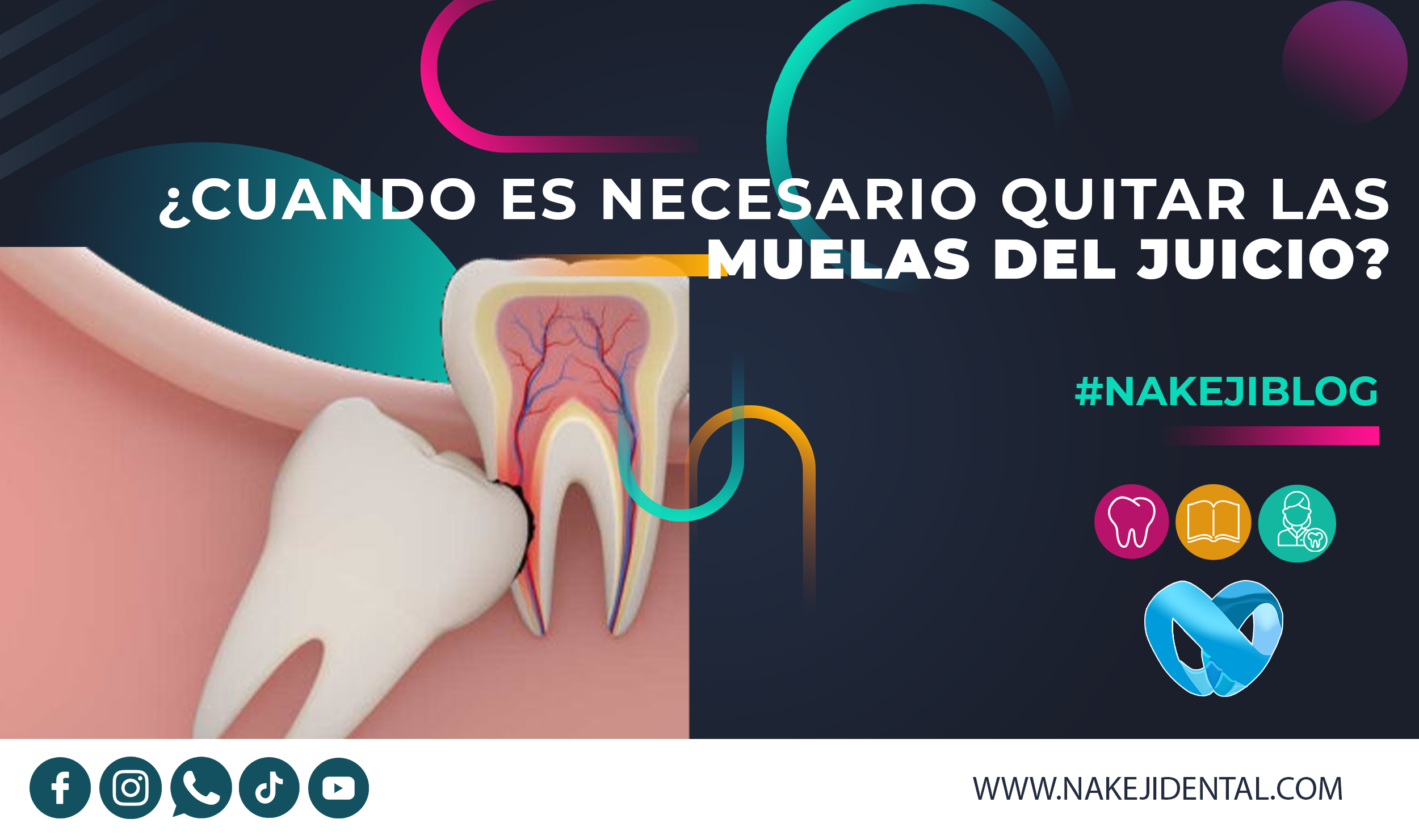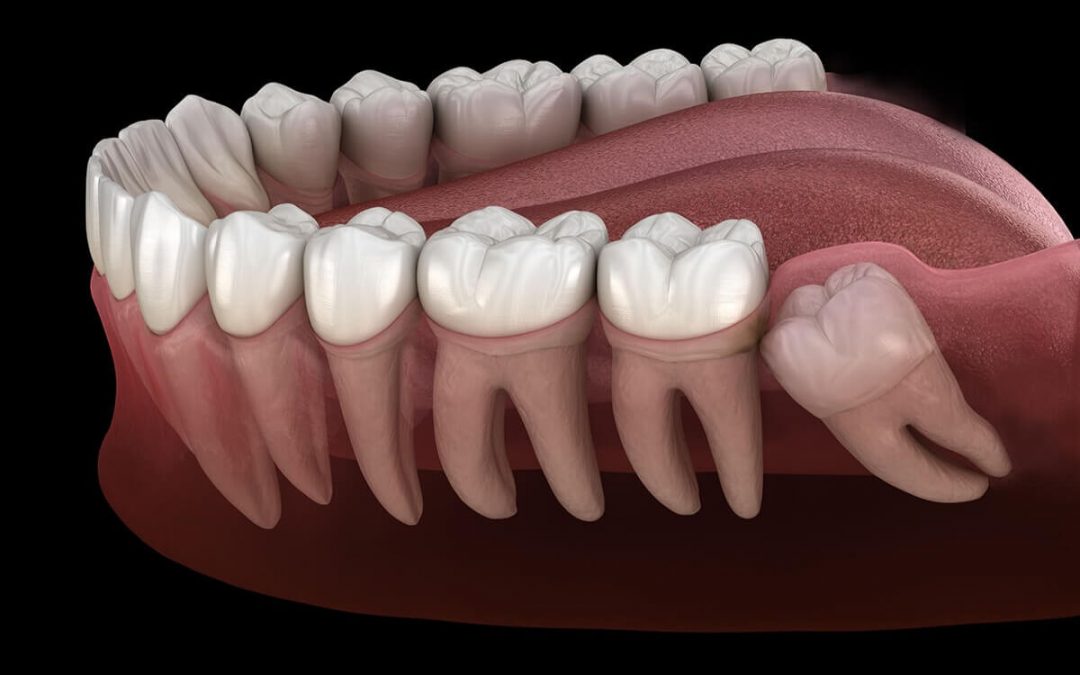
WHEN IS IT NECESSARY TO EXTRACT WISDOM TEETH?
The famous wisdom teeth are the last teeth to appear, between the ages of 20 and 30, and to position themselves inside our mouth. While some people are not even aware of their birth, at other times they are a real threat because they cause pain and inflammation that can lead to severe diseases.


What exactly are wisdom teeth?
Wisdom teeth or wisdom teeth are the third molars. They are located at the end of the mouth. We usually have four, but this can sometimes vary and there are people who may have one, two, three or none. They are called "wisdom teeth" because they usually erupt in adulthood, when the person already has a more developed "judgment".
If there is enough space in the arch they usually erupt without problems, but sometimes these molars are tilted, crooked and cause problems or discomfort during the eruption process. Sometimes, they are so badly positioned or included within the bone that they remain hidden without erupting.
Thus, in cases where they emerge healthy and correctly aligned, they are a valuable contribution to the mouth. However, in situations where they cause problems, it is best to remove them as they do not play an important role in the bite. In cases such as gum inflammation, treatment should be carried out immediately because if left untreated it can cause infections in the nerves, which generates severe pain and even bacterial infections that can enter our bloodstream.
When is it necessary to remove wisdom teeth?
As we have already mentioned, they are not really necessary teeth. As you can imagine, depending on the position that wisdom teeth occupy (at the back of the mouth), they are difficult to clean and as they are the last to erupt, in many cases, they affect nearby teeth, causing problems such as those found in the following situations:
Pericoronaritis: inflammation of the gum surrounding the tooth. It usually causes pain when swallowing, discomfort when chewing, cheek biting, suppuration and abscesses. If the gum becomes inflamed more than three times a year we recommend its extraction.
Caries: Difficulty in cleaning can cause caries in the wisdom tooth or in the front tooth, leading to pulp necrosis.
Gum disease: food impaction and bacterial accumulation can lead to periodontitis and loss of the bone supporting the third and second molars.
Orthodontic reasons: sometimes the lack of space causes dental malposition and the extraction of the wisdom teeth facilitates the alignment of the rest of the teeth.

What is the procedure for wisdom tooth extraction like?
We recommend first an examination with a dentist or dentist specializing in oral surgery. This specialist will perform an orthopantomography to visualize the position of the wisdom teeth, the shape of their roots, and their relationship with the lower dental nerve. If the dentist deems it necessary, a scan will be requested.
A sterile surgical field is set up for the procedure. We recommend that the patient take a light sedation to reduce stress and anxiety. The surgeon will apply local anesthesia to numb the area to be operated and depending on the case, will have to make an incision and detach the gum to visualize the molar. Sometimes it is necessary to remove some bone or cut the tooth to facilitate the extraction. Subsequently, some stitches are given so that the tissues close for the first intention, avoid bleeding and accelerate healing. These stitches are removed seven to ten days later.

What is the Post-operative care?
The dentist usually prescribes the patient an anti-inflammatory medication and antiseptic rinses to prevent infection. It is recommended the first day not to perform strenuous physical activities and rest at home, as well as apply cold the first hours. For a week it is advisable to eat a soft diet and keep the area clean with a soft brush. Normally the discomfort of an extraction lasts two or three days, but sometimes, depending on the complexity of the intervention, it can last up to two weeks.

If the teeth shift, should orthodontics be considered?
If there is dental malposition and crowding that hinders dental hygiene and predisposes to caries, we recommend orthodontic treatment. In addition, the correct position of the teeth in the mouth prevents enamel wear, improves the bite and avoids problems in the temporomandibular joint.
At Nakeji Dental we have the best professionals to perform this and more treatments with the best tools, the newest and most modern equipment. Schedule your appointment! And discover the Nakeji experience.


We are a team of Dentists Specialists in Tijuana, with a team committed to providing you with the best Dental treatment.
Closer to you
Gallery







